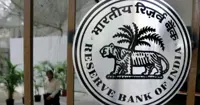Australia leaves interest rates untouched at 3 per cent
06 May 2009
Australia's Reserve Bank left interest rates unchanged at a 49-year low of 3.0 per cent Tuesday as expected, declining another cut as it feels that the economy in China and elsewhere is improving.
The central bank said it was leaving rates on hold to gauge how previous rate cuts and government stimulus spending had affected Australia's recession-hit economy, while bank governor Glenn Stevens offered a cautiously optimistic assessment of the international economy.
"While the near-term outlook remains weak, there are further signs of stabilisation in several countries," he said in a statement. "The Chinese economy in particular has picked up speed in recent months and many commodity prices have firmed a little."
Stevens also noted an improvement on financial markets, although he said confidence remained fragile.
"Conditions in global financial markets remain generally on a path of gradual improvement, with equity prices off their lows, term spreads declining and capital markets re-opening," he said.
The central bank has steadily slashed the cost of borrowing from 7.25 per cent since last September, with the latest cut last month. "Much of the effect of these changes is yet to be observed. The stance of monetary policy, together with the substantial fiscal initiatives, will provide significant support to domestic demand over the period ahead," Stevens said.
Stevens last month said that Australia, which in recent years enjoyed strong growth on the back of a China-driven resources boom, was in the midst of a recession. Australia's government has already pumped more than A$50 billion dollars ($37 billion) of stimulus spending into the economy and is expected to announce more measures in the annual budget due out next week.
Treasurer Wayne Swan said Australia's jobless rate, which rose to 5.7 per cent in March, would have been higher without the stimulus measures. But he said the global slowdown had eroded government revenues, meaning the budget would go into deficit for an extended period.
"There's no doubt that the deficit will last longer as a consequence of revenue downgrades imposed on this country by the rest of the world," Swan told reporters.




.webp)


























